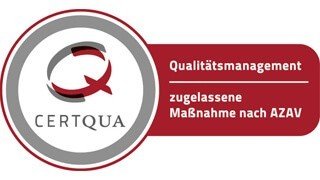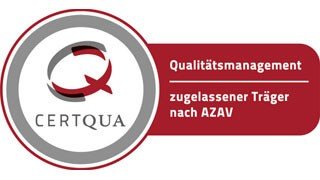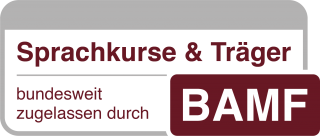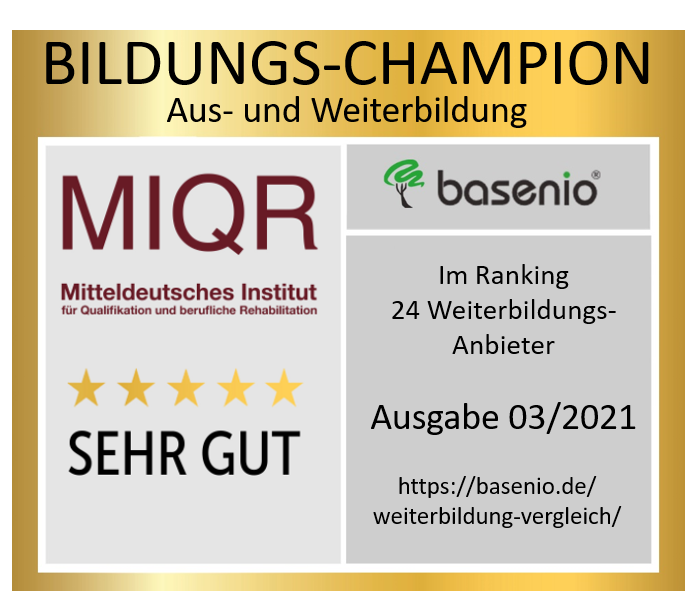Table of Contents
- What is advancement training?
- Upgrading training as a special form of professional training
- Advancement training for all sectors
- Providers of advancement training
- Benefits of advancement training
- Duration of an advancement training
- Prerequisite for advanced training
- Completion of advanced training
- Advancement training according to the Vocational Training Act & the Crafts Code
- Financing & funding of advanced training
- Difference between advancement training and adaptation training
- Conclusion
Vocational advancement training | Definition | Graduation | Financing | financial support
Career Advancement – Definition, Completion, Financing & Funding
Status: 05.01.2021/15/XNUMX | Reading time: XNUMX minutes | Author: Sophie Grober
If you want to be successful in your professional life, you not only have to have the necessary motivation for the job, but also the necessary qualifications and skills. However, not everyone has the opportunity to acquire an academic qualification directly after school. Many start their careers with an apprenticeship. The lower level of education is no longer a disadvantage that stands in the way of professional advancement. The world of work has changed enormously. One and the same job is no longer practiced for a lifetime. Instead, modern professional life is determined by constant further development. This opens up completely new professional perspectives for people. Advancement training is a special training measure that can be used to promote your own career and steer it in new directions. We would like to explain to you in more detail what advanced training is and what opportunities and advantages it offers you.
What is advancement training?

Advancement training is a special form of professional development that aims to enable participants to advance professionally. In the course of the training measure, the hidden potential of the participants is developed into professional skills that will later enable them to take on further tasks or even a management position. Professional development should be made possible for everyone, regardless of which professional qualification was originally obtained. At the end of the training measure, successful graduates should be at the level of a master craftsman, business economist, business economist, specialist businessman or technician. The next career step, the move to a higher level within the company hierarchy, should be possible with advancement training.
Upgrading training as a special form of professional training
Further training courses are measures of professional further training in order to acquire additional and expanded specialist knowledge. Employers themselves often ensure that their employees are continuously trained and up to date with the latest knowledge. However, the will and motivation to learn something new and expand one's own skills can also come from the employees themselves. They start the further and advanced training measures on their own initiative, for example to secure their professional status in the company, to promote their own skills and potential, in short: to increase the chances of success in their job.
Although upgrading training can also be assigned to further vocational training, it should not be equated with regular further training measures. Because compared to regular further training or an adaptation training, an advancement training is significantly longer and not only strives for an "update" of one's own knowledge. With advanced training you can a legally recognized higher professional qualification can be obtained, which is intended to bring about a career advancement.
Would you also like to improve your career prospects and get off to a successful start in working life? The Central German Institute offers various retraining and further education courses with which you can successfully reorient yourself and integrate into the labor market! On this basis, you will receive a recognized basis for any further advancement training. Our extensive range of training courses includes various IHK modules:
- Retraining office management clerk (KBM)
- Retraining as an industrial clerk (IC)
- Continuing Education E-Commerce (E Com)
- Commercial modular qualification (KMQ)
- Modular training (MWe)
- Professional training (BPW)
If you would like to find out more about our wide range of training courses, please contact us using our registration form or by telephone on 0800 77 89 100.
Advancement training for all sectors
Advanced training courses are offered in all possible sectors and professions. There are advanced training regulations for administrative, civil service and commercial law, but also for manual trades. Likewise, in the social and educational fields of work as well as in the field of nursing, professional advancement is possible through advanced training. There are provisions that apply to the liberal professions and to agriculture. Professional development is not a privilege that only certain professional groups are entitled to. It can be perceived and implemented by everyone.

Providers of advancement training
Upgrading training courses are offered by various training providers. For example, the branches of the Chamber of Industry and Commerce (IHK) offers various further training measures in various sectors to those who are willing to advance. Certain advanced training courses are even accessible via the learning platforms of technical schools. Attending evening schools is part-time and is ideal for those who only want or are able to take up advanced training part-time. Private academies are also available as training providers. No chamber examinations are then taken here, but private degrees are usually obtained. However, a state qualification can be obtained afterwards.
Benefits of advancement training
What motivates people to do advanced training? What are the advantages? The IHK conducts regular surveys to get answers to these questions. And the reasons and motivations behind completing advanced training are varied.
An academic career is not optimally suited for everyone, nor is it accessible to everyone because of a lower school-leaving certificate. Vocational training is then used to get a quick and direct start into working life. But that does not mean that the end of professional development has been reached once the professional qualification has been obtained. Nowadays there are various opportunities for advancement that improve one's career prospects. If you have successfully completed advanced training, it is now possible to start university studies at most technical colleges and universities without any problems. In this way, those who did not have the opportunity to start a course of study after graduating from school can do so via further training get an academic degree.
With advancement training, it is possible to break out of the boundaries of the originally learned profession and climb to a higher career level. Those who are willing to advance choose this special further training path expand your knowledge horizon and the knowledge and qualifications acquired specifically for an optimized and secure working life to use. With a higher degree, graduates of advanced training are able to higher position or even one new and better place to work to gain. Of course, this ascent also goes with them more powers, One greater area of responsibility and with one higher salary along.
Duration of an advancement training
The duration of the various advanced training courses is prescribed by law. It lasts at least one year, but can last up to three years. The duration of the training measure depends on how extensive the selected advanced training course is and whether the measure is being completed full-time or part-time. If the further training is carried out part-time, for example because it is part-time, the further training course will of course take longer. Accordingly, full-time training courses have a shorter duration.

Requirements for advancement training
In order for you to be able to carry out advanced training, it is generally necessary that you have successfully completed vocational training. However, a professional qualification cannot only be achieved in the classic way through training, but also through in-company retraining. In addition to professional qualifications, you should also have several years of professional experience. The further training builds on the vocational qualification and is designed to deepen the knowledge and skills that are already available. The participants are brought up to date with the current state of knowledge and, under certain circumstances, new perspectives are opened up to them. Participation in the course is not compulsory to pass the advanced training course, but it is highly recommended, as you will be taught all the important specialist knowledge during the course that you should know by the time you take the final exam.

We at the MIQR offer you various company retraining courses, for example retraining as a clerk for office management or retraining as an industrial clerk. In this way, you can obtain an IHK degree and thus a recognized professional connection.
If you would like to find out more about our extensive range of training courses, please contact us using our inquiry form or by telephone on 0800 7789100. We will be happy to advise you and support you on your way to professional success!
Completion of advanced training
You can complete advanced training in almost any industry. Of course, each department has its own degree. For example, the master craftsman, business administrator, business economist or specialist merchant are among the advanced training courses. In order to be able to officially complete the further training, you must take a final examination in your respective specialist area at the end. The exams are uniformly regulated nationwide and are usually conducted by the Chamber of Industry and Commerce. Participation in the examination is mandatory and you can only obtain your qualified technical degree if you successfully pass it.

Advancement training according to the Vocational Training Act & the Crafts Code
The general conditions for advanced training are laid down in various laws and regulations in Germany. The legal basis for participation and the examination guidelines can be found in §§ 53🇧🇷 54 of the Vocational Training Act (BBiG) and §§ 42a🇧🇷 51a the Crafts Code (HwO). We have summarized the most important points for you below:
- The Federal Ministry of Education and Research can, in agreement with the responsible ministry or federal ministries, recognize vocational training courses with higher qualifications and issue further training ordinances.
- The training regulations stipulate
- what the qualification is called
- what level of training is available
- what are the admission requirements, objectives, content and requirements of the final exam
- and how the exam is done.
- If there are no legal regulations for a further training qualification, the responsible body can issue examination regulations for the advanced training. However, these must meet the legal framework.
- There are three advanced training levels for higher-level vocational training, which build on one another:
- Certified professional specialist
- Bachelor Professional and
- Master Professional.
- A master craftsman’s examination can be taken as part of an advanced training course in a trade that does not require admission or a trade that is similar to a trade.
- The Chamber of Crafts has to lay down the basics of the master craftsman's examination. Which includes:
- the purpose of the master's examination
- the determination of the necessary skills, knowledge and entry requirements for completing the examination
- the requirements
- the procedural regulations in the master’s examination
Financing & funding of advanced training
Carrying out advanced training is not only an investment in terms of time, but also a financial one, with which you can significantly increase your professional success. Depending on the industry in which you would like to complete advanced training, which level of support you are aiming for and how extensive the training measures are, the costs can amount to several thousand euros. However, many people cannot afford this sum themselves. Luckily, that's not a must either. Although the participants usually have to bear part of the training costs themselves, there are various options for financing the upgrading training or having it funded by third parties.
For example, the employer as sponsor appear. However, they are not obliged to support your project. Your talent for argumentation is required here. By convincing your boss that your advancement training will ultimately benefit the entire company, they can agree to pay at least part of the cost.
According to the Upgrading Training Promotion Act (AFBG), those who want to get promoted are entitled to various financing and funding options. We would like to introduce you to the financial support you can obtain:
With the Advancement BAföG you can finance your advanced training according to the AFBG. Similar to BAföG for students, this is a legally regulated cash benefit. If those who want to advance meet the legal requirements, you can claim this type of support. With the Advancement BAföG, the participants receive a contribution that is independent of income and assets, with which the costs of further training are to be covered. The funding amount is made available to the participants partly as a grant and partly as a low-interest loan from the Reconstruction Loan Corporation (KfW). If the advancement training is completed full-time, so that those entitled to support have no or only very limited earning opportunities, the Advancement BAföG also makes an additional income- and asset-related contribution to living expenses. However, this amount is awarded as a full grant that does not have to be repaid by the participants.
The advancement training can also be done with a Educational loan financed. This is a low-interest loan, which is issued by the federal government in cooperation with the KfW and the Federal Office of Administration. Your own income and that of your parents or spouse have no influence on the amount of the loan. The participants are entitled to a minimum of 1.000 euros and a maximum of 7.200 euros. The amount can be paid out in a maximum of 24 monthly installments, which can be EUR 100, EUR 200 or EUR 300 each. However, only participants under the age of 36 who are completing their advanced training full-time can claim a student loan. The loan is also repaid in monthly installments. The first monthly installment of EUR 120 is due four years after the first payment.
You can also do your advancement training with education vouchers financed by the employment agency and the job center. Jobseekers, low-skilled and older workers who want to increase their value and potential on the labor market are eligible for this funding opportunity. Under certain circumstances, an education voucher can be used to cover all costs incurred in carrying out the advanced training. These include, among other things: participation fees, travel and travel expenses as well as the costs for meals and childcare.
Tip: In order to have to pay as little as possible out of your own pocket, the various financing options can also be combined with one another. For example, if the employer pays part of the training costs, you can finance the rest with the Advancement BAföG or with an education voucher. It is best to find out more early and let us advise you on your funding opportunities!
Difference between advancement training and adaptation training
Vocational training can be divided into advancement training and adaptation training. Both advanced training measures pursue the general goal of expanding previous professional knowledge and skills and bringing them up to date. However, the training courses differ in terms of how profound and comprehensive they are designed. While advanced training is subject to the legal framework and examination regulations, adaptation training is freer in its form and content. In addition, it is not as time-consuming or costly as advanced training. Adaptation training is typically seminars that employees may or must attend at the employer's discretion. Participation in these seminars, which last a maximum of one or two days, is advisable if new requirements arise in the previous field of activity. The (partially obligatory) participation in the adaptation training is intended to ensure that the work can continue to be carried out professionally and in accordance with the latest standards. In the course of this measure, the knowledge and skills in the current field of work are updated, deepened and specialized. However, completing the adaptation training does not bring about a significant improvement in one's own professional life. The participants do not have the opportunity to advance professionally or to gain a higher qualification on the basis of the adaptation training. With the certificate of participation, which is usually handed over at the end of the seminars, the participants can prove that they have cutting-edge knowledge in their professional field.

Conclusion
Advancement training is intended to enable those who want to take the next step up the career ladder. By conducting advanced training, the participants decide to invest their time, money and nerves in their professional future. Time and commitment must be made available from your own resources, the financial effort can fortunately be borne by various cost bearers and subsidies. But even if you have to bear part of the costs yourself, the investment in advanced training will pay off. Because this extensive training measure is designed for a long-term effect. Solid and legally recognized skills are to be developed and expanded here, which should enable the participants to have a successful and optimized working life. There are many benefits of completing advancement training, including a secure or better job, a higher and more responsible position, and earning a higher salary. These and other advantages are ultimately designed to lead graduates to professional success and, above all, to enable them to have a satisfying working life.
If you find this post interesting and would like to be kept up to date on all events, then subscribe to ours Instagram account or enter a "I like it“ for the official MIQR Facebook page. 👍
If you have any questions about our offer or would like personal and individual advice, please send us an inquiry.





























